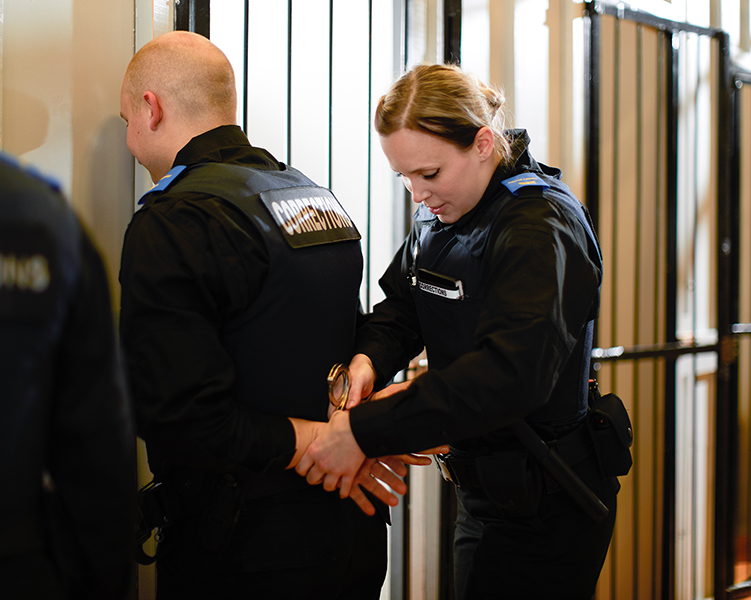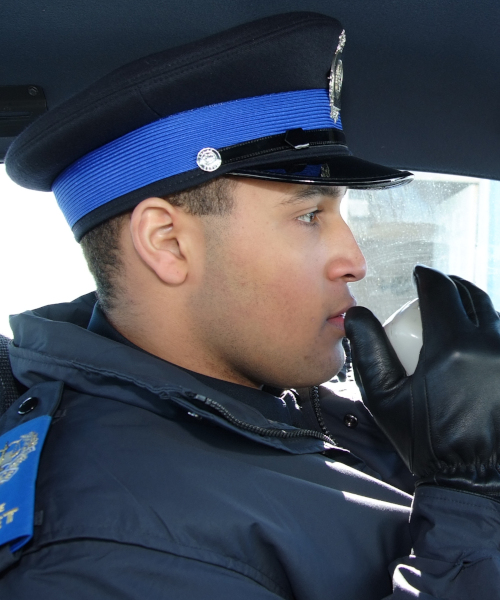


We're currently updating program content for 2025. Please check back often.
We look forward to welcoming you to the Atlantic Police Academy in August. The following information is provided to help you prepare for the Correctional Officer program.
Please review information about tuition and fees on the program page.
Currently, only sponsored cadets can apply.
Course registration is open to all first year students! To complete course registration log in to Self Service.
Please review your course map below to find your required classes.
| Courses 2025 PS Fall - 2026 PS Winter | |||
| Course Code | Class | Credits | Prerequisite |
| COMM-1410 | Workplace Communications | 2 | |
| COROFF-4005 | Control Tactics | 5 | |
| COROFF-4011 | Correctional Operations | 5 | |
| COROFF-4021 | Crisis Management | 1 | |
| COROFF-4026 | Defensive Driving | 1 | |
| COROFF-4040 | Fitness and Lifestyle | 2 | |
| COROFF-4056 | Canadian Corrections | 3 | |
| COROFF-4060 | Law | 2 | |
| COROFF-4071 | Workplace Health and Safety | 1 | |
| COROFF-4081 | Direct Supervision Housing Unit Management | ||
| COROFF-4085 | Judgemental Scenario Training | 1 | |
| CRES-1000 | Crisis Intervention and De-escalation | 1 | |
| PROF-1050 | Professional Ethics and Deportment | 1 | |
| PSYC-1200 | Social Psychology | 6 | |
| SAFE-1005 | PEI Occupational Health and Safety | ||
| Additional Canadian Police Knowledge Network (CPKN) courses as assigned | |||
| Practicum | |||
| Course Code | Class | Credits | Prerequisite |
| COROFF-4066 | On-the-Job Training (OJT) | 6 | |
For other important dates, please see the academic calendar
Cadets will participate in distance learning from their home residence. The course learning manager will conduct classes via distance learning. Cadets will be e-mailed instructions prior to the start date of the program.
Cadets will reside in Holland House or Montgomery House and attend face-to-face classes at the Atlantic Police Academy. Accommodation arrangements will be made by the learning manager and instructions will be e-mailed prior to arrival.
A normal week may consist of lectures, lab work, firearms, physical training, and practical scenario training. Regular classes are Monday to Friday, but you will be required to participate in training activities before and after class hours, as well as on some weekends.
Cadets are required to maintain their conduct with the professional standards expected of peace officers. Cadet conduct procedures are outlined in the Core Programs Cadet Code of Conduct/Policy and Procedures manual and will be enforced. Violation of the Cadet Code of Conduct/Policy and Procedures will result in dismissal from the program.
Periodic room and uniform inspections will be held throughout training. Prior to the first inspection, cadets will be shown how to properly make up their room.
You will be scheduled from time to time as a Duty Shift Cadet at the Atlantic Police Academy. Some shifts will be scheduled over weekends. These duties are considered part of the training process to get you acquainted with shift work and the practical application of station duties, and to ensure the safety and good conduct of your fellow cadets in the Atlantic Police Academy residence.
Successful completion of all aspects of training requires a passing grade of 75% on all academic subjects.
Out-of-province cadets are reminded to bring proof of health care coverage (Medicare card) from their home province.
Professionalism and proper dress and deportment is instilled in cadets while in training. Upon arrival at the Atlantic Police Academy, cadets are to report in the following attire which will be worn daily until dress uniforms are issued:
Short hair must be neatly trimmed and tapered above the collar, sideburns no lower than the tragus line. The face must be always clean shaven when on duty and when wearing a uniform.
Students attending the APA who already have a beard, goatee, or mustache may keep it as long as it meets the standard. Beards, goatees, or mustaches will not be grown while attending the APA. Cadets who have mustaches, beards, and goatees must ensure they are neat and well-trimmed.
Long hair is to be worn neatly off the shoulders with no loose ends or strands hanging down. Hair should be in a tight bun or a French braid that is tucked under the braid and off the shoulders. Allowances will be made for cadets entering the building in the morning and at lunch who are required to remove their headwear upon entry necessitating undoing the bun or braid. Once cadets arrive in class they are expected to redo their hair to ensure compliance with this policy.
Unless a religious or cultural reason exists, hair will be worn as per the above-mentioned
For cadets that live in Residence during the course, you will be assigned to either Holland House or Montgomery House.
Meals are provided five days a week. Meals are buffet style and provide a good nutritional diet while enrolled in training. If you have any food allergies or specific meal requirements, please advise your Course Learning Manager prior to arrival. This will allow ample time, so arrangements can be made to accommodate your needs.
Graduates from the Atlantic Police Academy made the following recommendation of items to bring while in
training:
Phone: 902-888-6700
Fax: 902-888-6725
Ensure packages are sent to your attention, and include the name of your program
Atlantic Police Academy
P.O. Box 156, 66 Argus Street
Slemon Park, PE
C0B 2A0